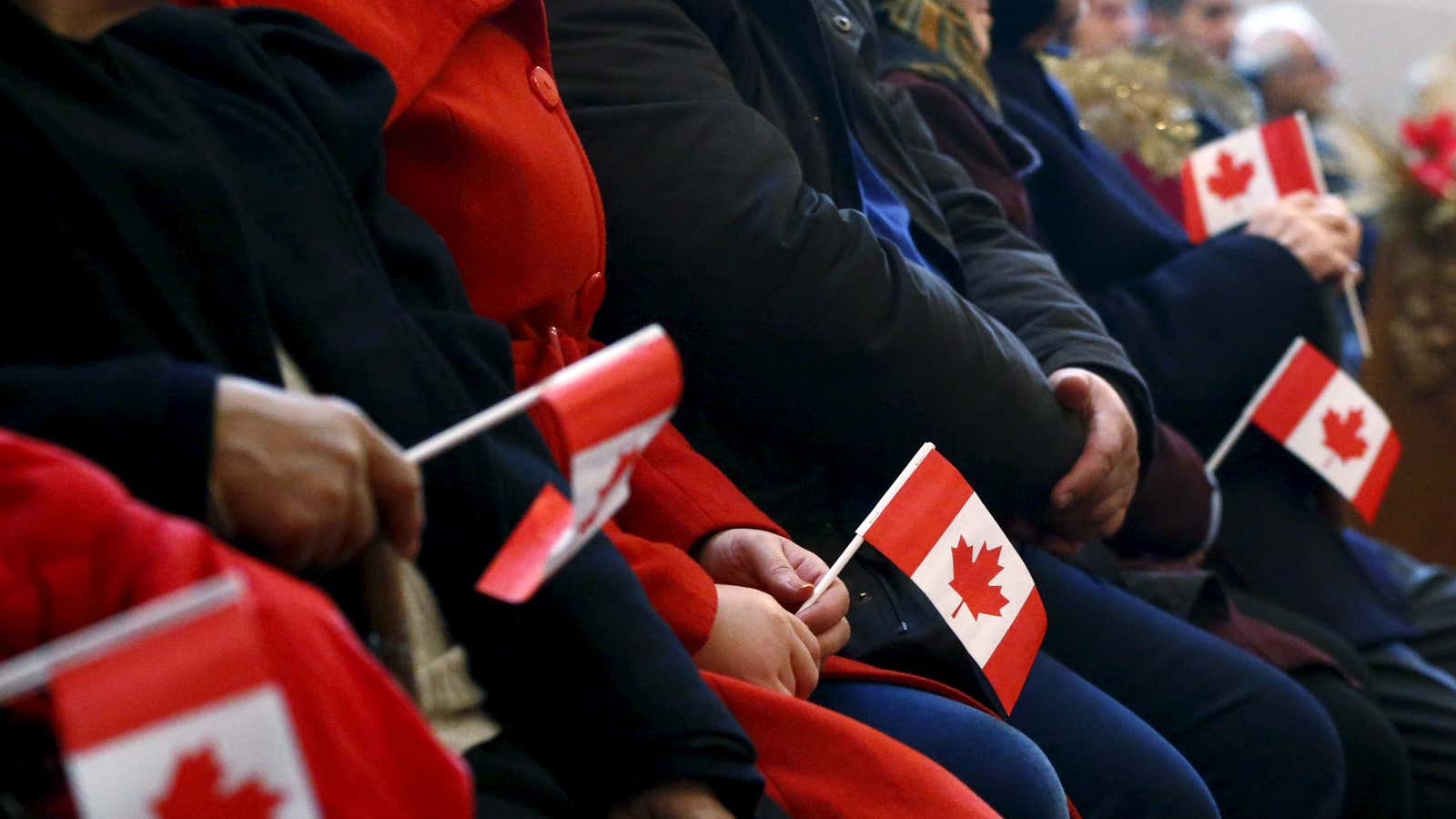Prince Edward County, Canada
Ramez, 17, is from a small town between Idlib and Hama in northwest Syria, a farming region that was among the first to see heavy shelling in the Syrian conflict. His family escaped to Lebanon in 2011. There they lived with extended family in impossibly crowded quarters. At one point, about 20 people shared a single-room apartment.
He and his brother Slieman, 19, worked for three years splitting stones and later making cement by hand. “In Canada, you have a machine for making cement, yes? In Lebanon, I am the machine,” Ramez says, laughing. Another brother, Ahmed, worked for a butcher, slaughtering cattle at age 11. (The families have asked that their last names not be used for this story for safety and privacy reasons.)
While they were in Lebanon, the kids missed home and school, but their hometown had been bombed, and the family business, a food and household goods store, was blown apart. “When people ask me what happened in Syria, I say, ‘I don’t know what happened. I was going to school and sometimes working with my dad in our store. And then the bombs came,’” Ramez says. “Everything was confusing.”
Ramez’s immediate family—11 siblings, two parents, and an ailing grandmother—registered with the UN’s refugee agency (UNHCR) and were officially recognized as refugees after a series of interviews in Lebanon and in Canada, where they’ve been granted permanent resident status.
The vast majority of Syrian refugees will not be resettled this way. Only the most vulnerable of those who have sought asylum in places like Turkey, Jordan, and Lebanon are considered eligible for resettlement to a third country. Refugees who need medical attention or are facing security risks in an asylum country are selected first. Of Syria’s 4.8 million refugees, only 1.4% have been resettled by the UNHCR or other recognized organizations.
Canada’s resettlement program favors those most at-risk, including women, children, the elderly, and those with serious medical concerns.
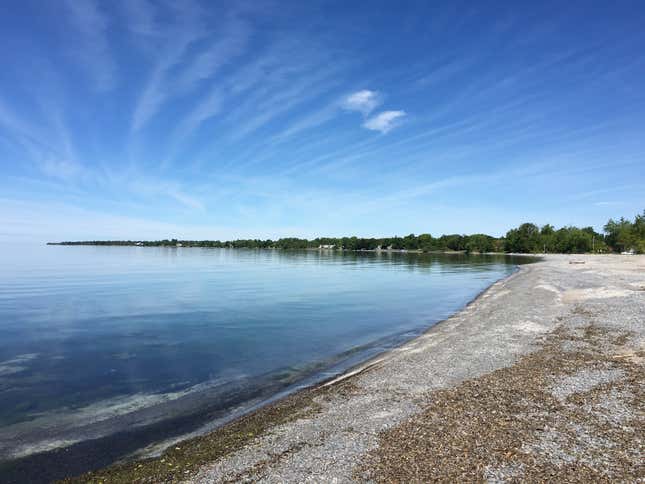
Last October, Ramez’s family was sent to Picton, a town in rural Prince Edward County, Ontario, the province’s newest, hippest wine-growing region. A peninsula in eastern Lake Ontario with white, sandy beaches, P.E.C. is somewhat larger than New York City’s five boroughs, but has a population of only 25,000. To see it in summer, at least, it’s hard to imagine a sweeter setting in which to rebuild a broken life. But what has changed life most for the family is that they got to Ontario not only with assistance from the Canadian government, but from a group of ordinary Canadians who pledged to support them personally.
Private sponsorship
Canada’s system for resettling refugees includes a private sponsorship path that makes it possible for ordinary citizens—whether a group of five friends (G5), a community sponsor (such as a corporation or church), or an official Sponsorship Agreement Holder (SAH) organization—to directly support refugees who might otherwise be left to languish on a waitlist. In these scenarios, the sponsors identify the refugees they would like to assist and submit an application to Canada’s immigration ministry for approval and processing.
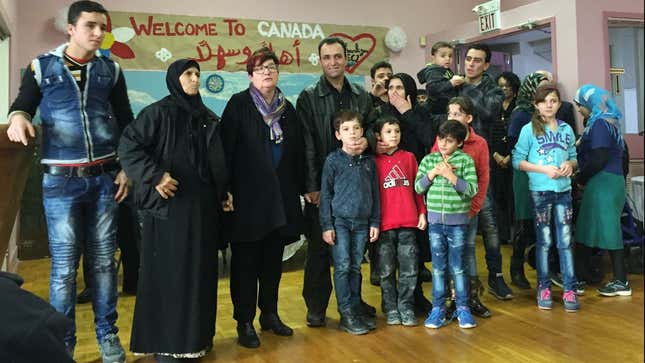
Private sponsors agree to pool their resources and cover the costs of a refugee family’s travel, housing, food, and other expenses for one year or until the family becomes financially independent, whichever happens first. Though it varies by province, the rough guideline for the cost of sponsorship is between $25,000 to $27,000 per year for a family of four.
Another pathway, the Blended Visa Office Referred (BVOR) program, divides the cost of sponsorship for one year between private citizens and the federal government. In this scenario, verified private sponsors select a person or family to support from among profiles of applicants made available to them. These cases have been pre-approved by a Canadian visa officer and identified as suitable for a BVOR sponsorship. (If a sponsor doesn’t come forward for a particular applicant, that person or family continues to be processed through the government-assisted refugee program, which could take longer.)
Sponsors must find and set up a home for the refugees before they arrive and guide them through local school and medical systems (healthcare is free here). The volunteers also agree to help sponsored individuals find work, and ensure they are signed up for either English or French lessons, depending where they live, and special entitlements like the federal government’s monthly child benefit payments. They find interpreters, get landline phones installed, pack school lunches, and become a general source of emotional and social support.
It’s a model that works. Since 1979, Canada has resettled more than 200,000 refugees through private sponsorship, and research has shown that those who are privately sponsored tend to find work sooner and are self-sufficient in less time than government-assisted counterparts.
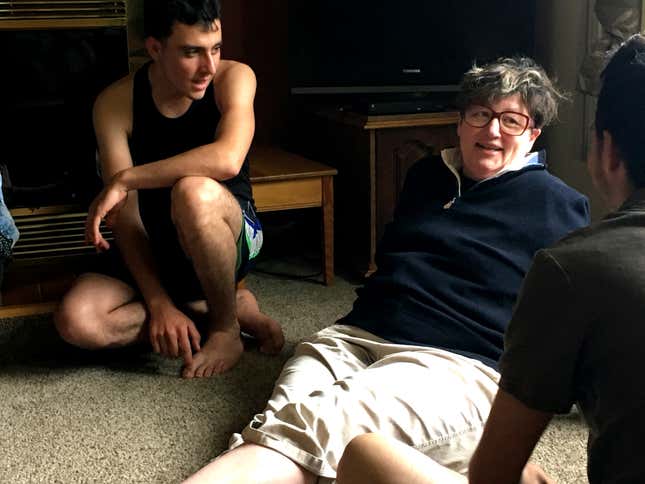
Carlyn Moulton started PEC Syria, the community group that brought Ramez’s family to Canada through the BVOR program. As a sponsor since last fall, she has witnessed how person-to-person relationships create the security that people in crisis need. Or as Jodi Whyte, an Ontario crown attorney, a PEC Syria member, and the lead volunteer for Ahmed’s family, says, “When someone is coming from a war zone, the last thing they need is a government bureaucrat. They need a friend.” Private sponsorship forces refugees to learn English and enables them to plug into existing networks to find work.
“The goal is integration into society,” says Moulton. “Where you have government sponsorship, they cluster the newcomers into a city where they can all speak Arabic together. There is no need to learn English. There will probably be a halal butcher on the corner and someone else will sell you pita bread. So you can be a little island, but it doesn’t make you much of a Canadian.”
Although the paperwork is daunting and sponsor applicants are screened, interviewed, and vetted almost as intensely as the refugees, thousands of Canadians have jumped through the hoops. Of the nearly 28,000 refugees admitted to Canada since last fall, approximately 12,000 were either privately sponsored or processed through a blended private-public arrangement. The statistics are constantly updated on a government website that also spells out how to become a sponsor or donor.
A coalition of the willing
Moulton, an art dealer in Prince Edward County, says she launched PEC Syria last August when stories and images in the news made her painfully aware of the magnitude of the Syrian crisis. She posted a message on Facebook inviting anyone interested in discussing ways to sponsor a family to a preliminary meeting at a central town hall, adding, “please share far and wide.”
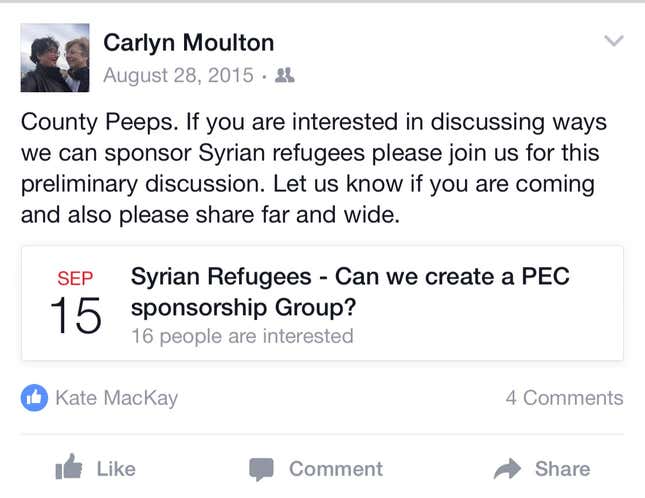
A former healthcare industry consultant, Moulton prepared for two possible scenarios: that a handful of people would show up and they would discuss becoming a G5, or that there’d be a mob scene and she’d need to run a structured presentation of her substantial research. “At five to seven, there were five or six people there and I thought ‘Okay, we’ll be a G5,’” she says. “At ten after seven, there were 110 people there. Then suddenly we had standing room only and people on the street who couldn’t even get into the space.”
A unanimous decision was made to form a community group and welcome a family directly rather than send money to an existing agency, and within an hour, the group had secured $40,000 in pledges. Moulton contacted the Ryerson University Lifeline Syria Challenge, a program set up by the Toronto school to encourage and help facilitate private sponsorship with help from hundreds of student volunteers, including many Arabic speakers.
Two weeks later, Ramez’s 14-member family was matched to PEC Syria by an SAH in Toronto. Prince Edward County was seen as an ideal locale because its potential rental houses were larger than any affordable city apartment. PEC Syria agreed with that rationale, read about the family, and agreed to create a home for them.
Surprised at the quick turnaround (normally the refugees might not arrive for two to four months, but in this case the family had been fast-tracked because of urgent medical issues), the volunteers scrambled to find temporary housing. “Something like 30 people worked feverishly to get beds and sheets and furniture and clothes and all of that together,” Moulton says.
She next created subcommittees focused on the family’s specific needs: transportation, banking, housing, education, employment, healthcare, childcare, etc. When the big day arrived, there were so many PEC Syria members who wished to go to the airport that the group required a bus, donated by a local company, for the drive. “They arrived October 29, and it was the beginning of an extraordinary journey,” says Moulton.
Life in Canada
In the early days, the resettled family had little faith that things would work out for them in Prince Edward County. The Canadian volunteers tried to send them a letter of introduction about themselves and the area but the family never received it. Their temporary home was a rambling old farmhouse in a fairly isolated spot; they didn’t have a car; and they could only speak to others through Google Translate.
Ramez, whose quickly developed English skills have made him an unofficial spokesperson for the family, recalls his father telling everyone not to unpack, certain that moving to Canada was a mistake. “He called a friend from Syria who lives in Ottawa. The friend said, ‘Don’t worry. You’re going to be okay.’”
“Think about the fact that while they were in Syria, they were bombed and they were shot at on many occasions, and they lost absolutely everything,” says Moulton. “Then they were in Lebanon, where they were in a terrible situation, where they were abused, beaten up, and denied any access to healthcare and had really inadequate food. So they’ve had five or six years of being traumatized, and now for the first time in many years, you’ve got a group of people saying, ‘We will help look after you. I will help you protect your kids and will help you take care of them.’ It took them a while to trust that.”
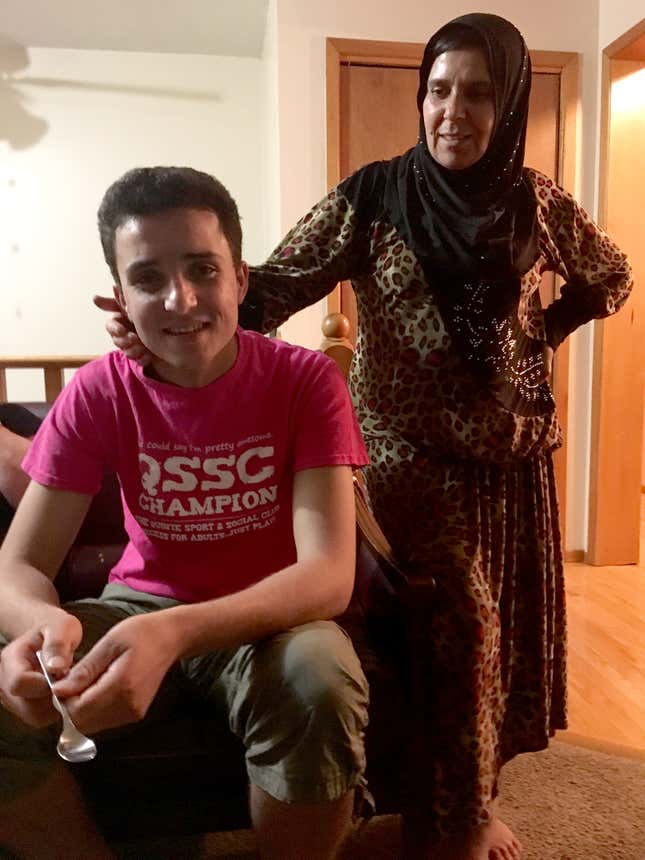
At the same time, Moulton also worried that local residents would reject the refugees. Not only was the family larger than the norm in Canada, but they introduced the first ever women who wear the hijabs to Prince Edward County.
Her anxiety was not totally unfounded. One of Ramez’s sisters who wears a hijab was the target of ridicule and taunts from a few boys at the local high school where some posted photos of her on Facebook.
PEC Syria has also deleted a few angry messages from its own Facebook page. Locals don’t fear terrorist violence, but think that people who live in Canada should be given special treatment and jobs instead of newcomers. In a recently published survey, three-in-five Ontario residents said they were in favor of the government’s decision to accept Syrian refugees, but 75% also said that Ottawa should spend resources on people “here” first.
In Prince Edward County, reactions to the new residents have been overwhelmingly positive, according to sponsors and to Ramez and his brothers. Slieman had arrived “desperate” for a haircut and so was taken to a local barber who cut his hair but refused to take his money. “The first time we went to the grocery store, the owner handed them $1,000 in gift certificates,’” says Moulton. “Within two days of their arrival, their garage was filled with bicycles that had been donated from the local bike shop. There are new barbecues, toys, and swing sets at every house.”
Other donations have included a house normally rented to summer vacationers at a profit now rented to the refugees for a modest fee, and minivans. The local school board hired an Arabic-speaking school teacher to better serve its new students.
A few weeks into their transition, Ramez’s parents, using Google Translate to communicate, explained that other family members were still living in dire straits in Lebanon. PEC Syria’s volunteers raised more funds and found additional affordable housing. Moulton replicated the first constellation of volunteer committees—or “pods” in PEC Syria lingo—for two families that arrived in February. This time, the trust that was by now established with the first group was easily transferred, says Robin Baranyai, a local journalist who runs PEC Syria’s fundraising committee. Slieman, Ramez, and Ahmed became ambassadors for Canada, she explains. The three families, all related, now live in three towns within an hour’s drive of each other.
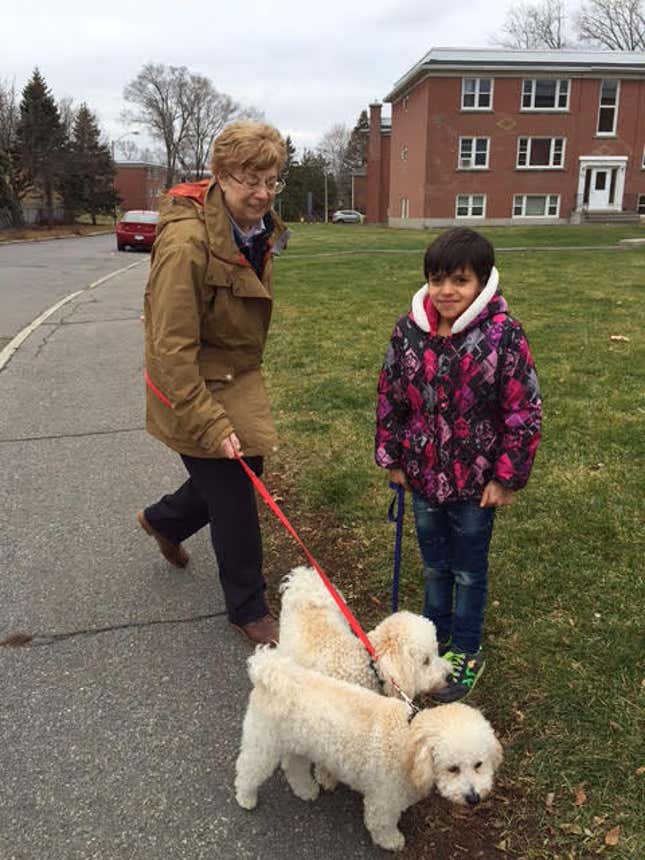
Within each 35- to 40-person volunteer pod, some people agreed to short-term jobs, like setting up a kitchen from scratch, while others committed to ongoing duties, like driving the family for grocery trips or being a school liaison. For now, a volunteer attends every doctor’s appointment, but all medical data is added to a family binder so that, when the time comes, the resettled family will be able to take over.
This is one tenet of sponsorship that volunteers and families alike sometimes need reminding of: These are families who were self-reliant in the past and will be again, says Moulton. “It’s our job to make them independent again. They’re not our project.”
Independence
Naturally, there have been a few surprises for both the Syrians and their sponsors. No one in Ramez’s family appeared to know how to use a thermostat or a microwave when they first moved into their home, Baranyai remembers, and the concept of freezing food was new to them. One day a volunteer showed up at the home to find hundreds of dollars of fresh meat in the garbage: “Look, it’s no good,” said Sawsen, Ramez’s mother, banging the meat against a countertop to demonstrate that it had hardened.
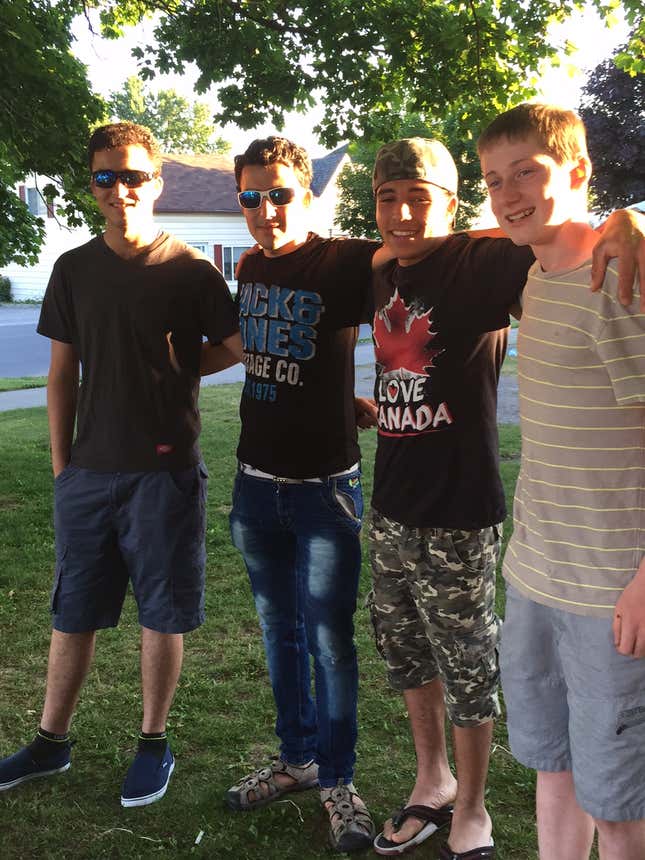
It’s common for refugees in food-scarce situations to over-rely on sugar as an easily sourced and cheap form of energy, and the children had become accustomed to consuming copious amounts of it in coffee and sweets. They’ve made progress with that, according to Baranyai, partly because they were introduced to the dentist. A few local dentists had offered their services as in-kind donations, but had to reconsider once they saw the extensive work required. The dental health challenge has been a common theme among refugees across the country since many people who fled Syria had not been able to visit a dentist or doctor for years.
As the families approached their first Canada Day on July 1st, they reported feeling comfortable in P.E.C. and have repeatedly expressed their gratitude for the community’s generosity. Ramez asks his mother what she most appreciates about Canada. Sitting on the floor of the kitchen chopping vegetables, she has a quick response for him to translate: “The volunteers. They’re very, very kind.” What has been hardest? Missing faraway friends and family.
The children have friends dropping in all the time, are playing on local soccer teams, and have impressed their school teachers by picking up quite a bit of English in only six months of formal classes. “The teacher says my reading is ‘fanTAStic’,” says 10-year-old Walaa, imitating her instructor’s intonation. Abdel Malek, Ramez’s father, recently passed his driver’s license test and last month was hired as a groundskeeper at a local hotel.
All of the older teens also have part-time jobs. Ramez is wiping tables and restocking straws and condiments at McDonald’s, which he finds “a much better job” than what he did in Lebanon. Slieman and Ahmed often pick up work at Clearwater Canoe and Kayak Design, owned by Ian Crerar, who is also the lead sponsor for the second family that arrived.
Both the adults and children have spoken to local groups and classrooms across the district, describing what they’ve endured in Syria and Lebanon. Ramez and Slieman have even stepped forward to be “human books” in a local town’s Human Library day, an annual event when people “sign out” a person to learn about his or her life.
Ramez says he wants to work on behalf of refugees one day, “maybe with the United Nations, helping people.” Ahmed, 15, wants to be a human-rights lawyer and is hoping to get himself a pair of shiny oxfords that look like the ones he’s admired on the feet of prime minister Justin Trudeau.
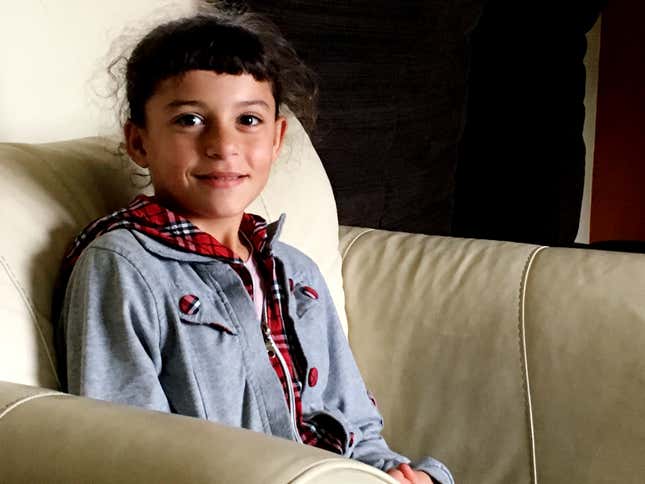
For the adults, the relief of living in Canada is tempered by the knowledge that many people remain trapped in Syria. They sometimes hear bombs going off in the background of WhatsApp calls to home and have asked their sponsors to stop posting pictures of their meals to Facebook because it’s upsetting people who have little to eat.
Signs of past trauma were evident among the youngest members of the third family to arrive. The children would run for cover whenever a plane flew overhead. One of the 7-year-old boys was filling bird feeders in Whyte’s backyard this spring when he saw a plane from a nearby air force base approaching. He cowered and waited for it to pass, then turned to Whyte, asking, “Jodi, no kaboom?”
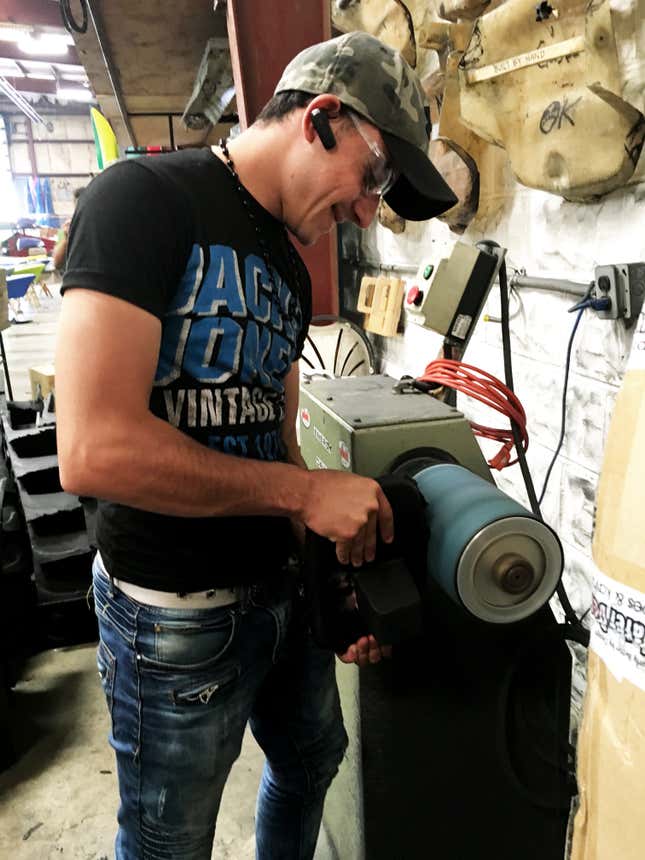
“I said, ‘In Canada, no kaboom,’ ” Whyte recalls. She could see that he was trembling.
A new Canadian Senate report about “the quiet suffering” of Syrian refugees in Canada is urging the government to spend more on helping the refugees learn English and integrate. It also asks Ottawa to provide mental health care for the refugees. Stories of the horrific torture, violence, and sexual abuse that many people endured before coming to Canada are slowly surfacing.
Some Syrians across Canada are encountering racism and Islamophobia as they try to adapt. A group of Syrian refugees was pepper sprayed at a welcome event in Vancouver in January in what was called a hate crime. Last month, a woman at a supermarket in London, Ontario spat at, punched, and tried to tear a hijab off a Syrian refugee mother who was shopping with her 4-month-old child.
Nothing so ugly has affected the lives of the new families in Prince Edward County. But Moulton says it’s become obvious that expecting the families to become self-supporting in one year was unrealistic. The group has pledged to continue raising funds for the families for a second year, though it’s not part of their legal obligation. Although the more recently arrived fathers want to start work, and one wife may become a seamstress again, their sponsors are urging them to wait until they’ve taken additional English classes. Evidence shows language skills will help them get higher-paying jobs and lead to better outcomes for the next generation.
Why aren’t there more programs like Canada’s?
All of the PEC Syria volunteers share the same message: Private sponsorship has been transformative for the entire community and they’re not sure why other countries aren’t doing it.
Currently, there is no comparable program in the United States. American citizens can pledge to support immigrants for one year, but they can’t do the same for refugees. Private sponsorship has been used to resettle Cuban and Vietnamese refugees in the past and a private sponsorship pilot program was briefly implemented for Soviet Jews in 1990.
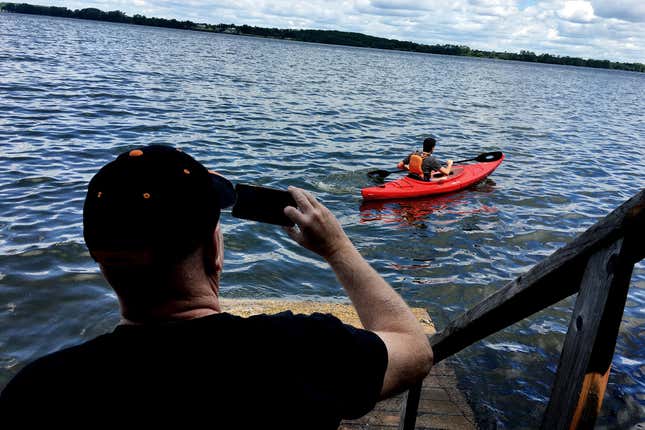
The US State Department now relies on a handful of trusted agencies contracted through the government to resettle refugees. “The process has been professionalized,” says Kathleen Newland, co-founder and leader of humanitarian work at the Migration Policy Institute, a Washington, DC-based think tank.
In the past year, some civil society organizations, such as the Syrian American Council, and municipal and state governments that work with refugees have expressed an interest in introducing private sponsorship again. The libertarian think tank Niskanen Center has written extensively about how private philanthropy has worked in other scenarios and could now be used for the mass resettlement of Syrians. But the federal government has been silent on the issue.
Oxfam has called (pdf) on the world’s wealthier countries to resettle about 460,000 of the Syrian refugees registered in asylum countries. According to its recent fair share analysis, that would mean that the US should accept 160,000 people. Since October 2015, however, only 5,186 Syrian refugees have been resettled in the US.
Newland doubts that will change before the fall’s presidential election, especially since the government is already struggling to meet its current promise to resettle 10,000 refugees. And public opinion about the US response to refugees is mixed.
“I’m not completely pessimistic about it,” Newland adds. The United Nations will hold a high level summit on refugees and migrants in September, and Filippo Grandi, who heads the UNHCR, has already said that Canada’s model should be exported around the world. Australia has adopted a private sponsorship plan as have 15 out of 16 German states. According to the Economist, New Zealand and Argentina are expected to follow suit, while Ireland and Switzerland have begun testing the idea. Before the Brexit vote, the British government had said it would develop a program like Canada’s.
Come September, Newland offers, “It might be attractive to the Obama administration to announce something like this.”
Correction: A previous version of this post said that Walaa was eight years old.




